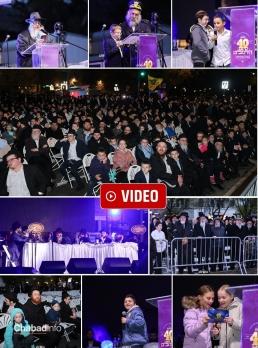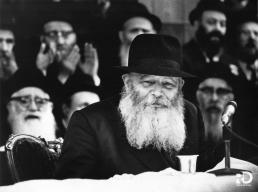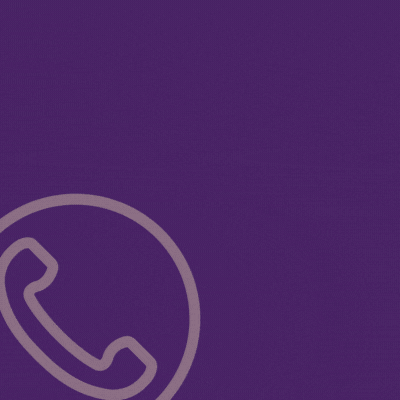Beis Moshiach Sits Down With Creator of ‘Orthodoxed’ for Exclusive Interview
Berel Solomon is a Lubavitcher businessman and entrepreneur who has shared his remarkable story of return to Yiddishkeit with millions of viewers in his recently released documentary film ‘ORTHODOXED’. Beis Moshiach’s Yosef Shidler went behind the scenes in an exclusive interview • Full Article
Yosef Shidler, Beis Moshiach
In stark contrast to a genre of films that delight in highlighting people’s negative experiences with Yiddishkeit, Berel Solomon’s Orthodoxed offers a refreshing look at the warmth and positivity that define Judaism and Chassidus. More than half a million YouTube viewers have been enthralled by the Montreal native’s unapologetic documentary that shows how he went from being a drug dealer and a nightclub player to a deeply committed member of the Lubavitcher community. In a no holds-barred interview that ranges from passionate to pragmatic, Solomon shares his thoughts on his personal journey with the readers of Beis Moshiach.
Beis Moshiach: Your story has a lot of different angles until you eventually end up at Chabad, but you actually started out elsewhere.
Berel Solomon: There was this Yid named Boaz that I was close with and one day he arranged a type of “showdown” or “debate” between different paths in serving Hashem. The debate took place at Rabbi Ronny Fein’s house – it was the first time I had ever met him, and he represented the shitah of Chabad Chassidus. While Boaz returned back home to Israel, Rabbi Fein would call to invite me to his shul for kiddush. That was the only connection I had to Orthodox Judaism at that time.
BM: So at that particular moment you connected with another derech and then you ended up Lubavitch?
BS: Correct. I would go to Rabbi Fein’s house a lot and would quote from other sefarim I was into at the time, but after a while I had read all the books that group had to offer and I needed something else. This group was very good to invite me in, but at the end of the day Chabad invented kiruv so they know how to bring someone from the nightclub to the einiklach. I felt that Chabad was a more robust path that would help me get to where I wanted.
BM: What in the derech of Chabad brought you in?
BS: Sifrei Chassidus from other derachim are very ephemeral – it stayed with me as lofty concepts, while Tanya is Chabad – chochma, bina and daas – which is supposed to get into your head. Before I began to learn Chabad Chassidus, I felt like a leaf floating in the wind – whichever way the wind blew me, that’s the way I was going to go. Chabad is like a stone dropping – no matter how hard the wind blows, that stone is going straight and it has a very clear path.
BM: What are some of the strongest messages from Chabad Chassidus that you connected to?
BS: One of my favorite sayings is “vayter.” I love the concept that if you screw up, just go vayter – don’t beat yourself up, just go forward. The fact that Tanya really focuses on teshuva and that your aveiros become mitzvos is enticing to a baal teshuva. I have friends who are Satmar or Belz or Viznitz who have asked me how I could put out a film like Orthodoxed and I have told them that if I was Satmar I probably would not have put out a video like this, but the Chabad community will appreciate and celebrate such a story.
BM: What other messages in Tanya appealed to you?
BS: I am really a big fan of bitachon, and the fact that you can use it to literally change the future and reality. Another thing the resonates well with me is the Rebbe’s shitah on tzedaka — that you can test Hashem with big pledges. I remember the first time I gave a decent size donation about 10 years ago. It was $500 and when I came back to my desk, there was a check on my desk for $1300. My accountant told me he had miscalculated my taxes and this was how much I had overpaid.
BM: That is amazing. Did you continue further with that?
BS: A few years back, Rabbi Levi Raskin pledged me for $18,000 and I trusted that he was following the Rebbe’s shitah and if they were asking me for that amount, they knew what they were doing. I actually cried when I said yes and I was definitely scared, but I knew that it was up to the Rebbe and Hashem and I was able to fulfill it b’simcha. The next year I had just started my own company and I had nothing, and I thought Rabbi Raskin and his father would go easy on me, but they pledged me for $36,000. I said yes and, once again, I was able to fulfill my pledge b’simcha. The next year was $54,000.
BM: Have you seen nissim?
BS: You can’t imagine. Tzedaka is rocket fuel for your personal finances and if you really look at the Tanya, almost a third of it speaks about tzedaka. The next year I pledged $72,000 and the year after that $100,000. During the Corona pandemic, my whole business fell apart and I called my mashpia a month before Rosh Hashana and told him I couldn’t come through and he told me that taking out a loan would still be making good on my pledge. I pushed it through, $5,000 at a time and this year I am going to jump from $100,000 to $250,000, following the Rebbe’s specific way of writing up a shtar with each institution you are giving to and giving post-dated checks.
BM: And you have seen how this works.
BS: Yes. I asked a guy in my shul to speak to the community about how you see bracha from giving tzedaka, but he told me that he wasn’t doing well financially and only gave $9,000 in tzedaka. The Rebbe says that for every dollar you give, Hashem gives you back four, so if he is giving $9,000, Hashem only has to give him $45,000, which is why he isn’t doing well.
BM: I saw this myself on Shabbos Shuva in the Moshiach Center in Fort Lauderdale, Florida. Everyone was pledging generously for each aliya and I asked if that amount was special for Shabbos Shuva. I was totally shocked at the price they were selling for. They told me they do that every week and that everyone does well financially – they are constantly giving and constantly getting back.
BS: When I started talking about this concept four or five years ago, a large percentage of the people in my shul Chabad of Cote St. Luc in Montreal were struggling financially, but once they started giving, everyone automatically started doing better. People think they can’t give because they don’t have, but really, they don’t have, because they don’t give.
***
BM: Do you think if you had known someone like you when you were growing up your outcome might have changed earlier?
BS: If you had told me during my deepest, darkest part of my nightclub career that I would become a Lubavitcher Chassid, a religious Jew, I wouldn’t have been surprised. I was going heavy into stuff because I was looking for something and Hashem blessed me that I reached the pinnacle of success at a very young age.
BM: People have wondered why you were searching for something when you clearly had everything going for you.
BS: In a certain sense, that made it easier. So many people think they feel empty because they aren’t succeeding. I was succeeding, and yet I still felt empty.
BM: And you found what you were looking for?
BS: I found it. It was Hashem. Torah and mitzvos are just a condiment to your relationship with Hashem.
BM: Can you tell me about your first trip to the Ohel (mentioned in the film)?
BS: It was a cold Motzaei Shabbos in the middle of a snowstorm and when my parents heard that I was going to drive overnight to a cemetery in New York, they were very upset but it was something I had to do. I wanted to ask the Rebbe for a blessing to go to yeshiva for two months, but when I got there, I got the clarity and strength to ask for a blessing to go for 12 months. I realized I wanted to see all the parshiyos, all the chagim, from a Torah perspective and I remember thinking at the time that the Rebbe knows who I am.
BM: What did it feel like?
BS: I felt empowered. I felt understood. I felt cared for. I felt like something was being sensitive to me. It’s not easy to explain. Soon after I found myself in yeshiva, in Maayanot in Yerushalayim.
BM: Was it difficult to make your time in yeshiva happen?
BS: Very. I was very successful in my father’s company and had built up his whole business. To get up and leave to learn Torah and not earn money is like making a major statement to the world, rejecting everything that the world stands for. My family wasn’t happy, not only was I leaving the company, my decision made no sense to them and they were scared of what would happen to me because they had no experience with yeshivas. My father said in the film he thought it would be a brainwashing operation. Little did he know they weren’t brainwashing me, they were washing my brain – it’s very different.
BM: What were those twelve months in yeshiva like?
BS: I took my time there seriously and it was very intense. I remember one night going for sushi with my cousin and she asked how long I learned that day. I told her it was 14 hours and then I started crying, realizing how lucky I was to be in yeshiva, learning Torah. Until I got there, I would steal a class here and there, or listen to a shiur on my air pods at work. In yeshiva, you eat in order to learn. You sleep in order to learn. You exercise in order to learn. Being immersed was very powerful.
BM: Do you think you will always want to go back to your yeshiva days?
BS: 100 percent! In a certain sense, it is much easier to work. Learning Torah all day is very hard and I went to bed almost every night with a headache because it was so intense. My father, who was the biggest opponent to me going, said later that he was glad I went because when I came back my mind was so sharp, I could burn a hole through eight feet of steel.
BM: What did you learn while you were there?
BS: I went to the normal classes and the mashgiach, Rabbi Eli Touger, told me to learn as much as I could in English. I would just take mesechtas in English and blow through them. I made four siyumim on four masechtas while I was there.
BM: And that was after never having learned Gemara before.
BS: In my opinion, yeshivas do kids a disservice by discouraging them from using English Gemaras. It’s so not true that it becomes a crutch – a lot of kids learn four daf in a year, but I learned four masechtas in a year. A lot of people spend their whole careers learning how to learn and I think personally it’s better to spend the time doing as much as you can, because once you leave yeshiva, you won’t have the same opportunities to learn.
BM: What would you tell bachurim in yeshiva right now?
BS: Spend more time learning and less time learning how to learn. I’m sure when Rashi came out originally, people said “don’t learn Rashi, it’s a crutch.” Today you can’t learn Chumash without Rashi. Remember also that the Gemara was written when the language of the land was Aramaic, so the language barrier didn’t exist the way it does now.
BM: Are there any other takeaways from yeshiva that you want to share?
BS: Yes. A farbrengen has a power to bring someone back to life. One day I was in a terrible place and sitting at a farbrengen brought my life back. Chabad is like Yiddishkeit for dummies – all you have to do is show up. You show up to shul every day you’ll be okay. You show up at the farbrengen and you’ll get where you need to go.
BM: What is your deepest message to yeshiva bachurim about learning?
BS: When you learn Torah you become superhuman. By 20 years old, a bachur has gone through Gemara and this and that, and his brain is on steroids. He is training his brain every day in a way that will affect him positively in whatever he does going forward, whether in business or in life.
BM: What can you tell me about your relationship with the Rebbe?
BS: When I first came to Chabad, it bothered me that people would just quote the Rebbe because it seemed like they had no opinions. But one day at the Torah Center in Montreal, I told my friend that it was amazing to be sitting in a building that 10 years ago was just a thought in someone’s head. He said to me that what I wasn’t realizing was that the Rebbe had actually thought of this shul 50 years earlier and right then and there I became a Chassid. The idea that the Rebbe had transcended time and space half a century ago, by thinking of this shul that affected me today, resonated very strongly with me.
BM: Do you have any personal stories about the Rebbe?
BS: The Rebbe has been coming to me in dreams about every two months or so since that day.
BM: That’s amazing! What was your reaction when it first happened?
BS: It feels like being in warm water and it is so soft and comforting that you never want to leave. At one point when I was producing Orthodoxed, the entire production was falling apart, and I dreamed that I was sitting at the Rebbe’s Shabbos table and he was my grandfather. He was rubbing my back and looking me in the eye as if to say, “Stay strong, I’m proud of you.”
BM: How many dreams like that have you had?
BS: Dozens.
BM: Did any of them have a message that you could see coming true?
BS: When I was starting my business, I had a dream that I brought some students from my old high school to see the Alter Rebbe. They were all sitting around his table and when they left, I asked for a bracha for my business. The Alter Rebbe said to me “You don’t need a bracha, you already have one.”
BM: Any other stories related to the Rebbe that you can share?
BS: I have lived in Montreal all my life and I go back often to my former school and work with the kids. As it happens, my wife is from Latin America and we have talked about moving back to Panama many times. We wrote to the Rebbe, via Igros Kodesh, about moving on three separate occasions, and every time the answer came back black and white – you are not permitted to move because all of your brachos come from the kids you work with.
***
BM: With Yud Shevat approaching, what thoughts can you give to people reading this?
BS: I actually have more than one. The first is that you never know when the person you are being mekarev might just turn out to be the next Berel Solomon who will hit half a million hits online. The second is that you never know whose neshama you are going to unlock. And the third is that the younger that you can get through to someone, the better. I was fortunate enough to have done teshuva in my early twenties and was able to marry a frum girl, build a frum family. Younger people are very impressionable – don’t forget about the kids.
BM: How do you think people can connect to Yud Shevat?
BS: I would say just do what the Rebbe says. He’s not going to steer you wrong. I have yet to meet one human being who said I listened to the Rebbe and everything went wrong. Just listen to him. He knows and he cares. When the Rebbe says to do something, it’s not a suggestion – it’s your life that depends on it. Do it.
BM: Any closing remarks?
BS: Since I’ve released Orthodoxed, I’ve done over a dozen interviews and this one was by far the best. Your questions were very leading, and it was nice to go in depth. Thanks for the opportunity.
BM: Thank you!
*
The magazine can be obtained in stores around Crown Heights. To purchase a subscription, please go to: bmoshiach.org
339
Join ChabadInfo's News Roundup and alerts for the HOTTEST Chabad news and updates!










































